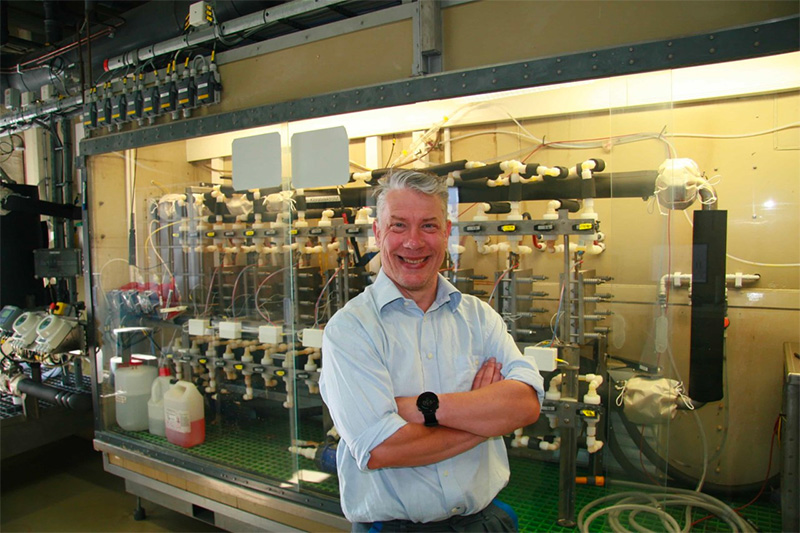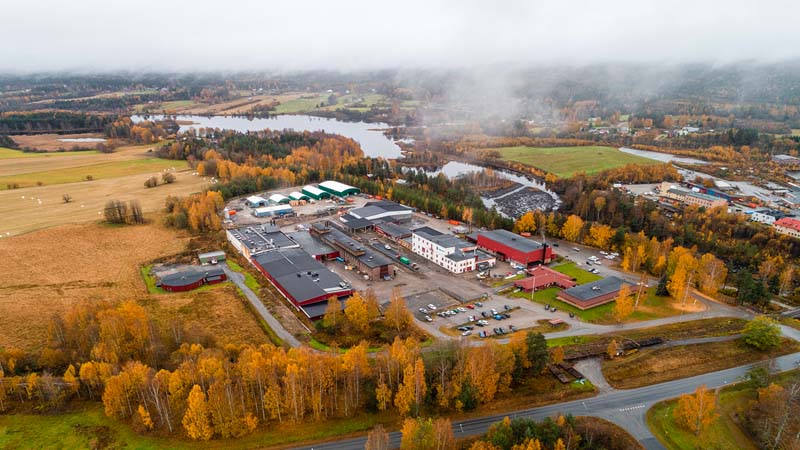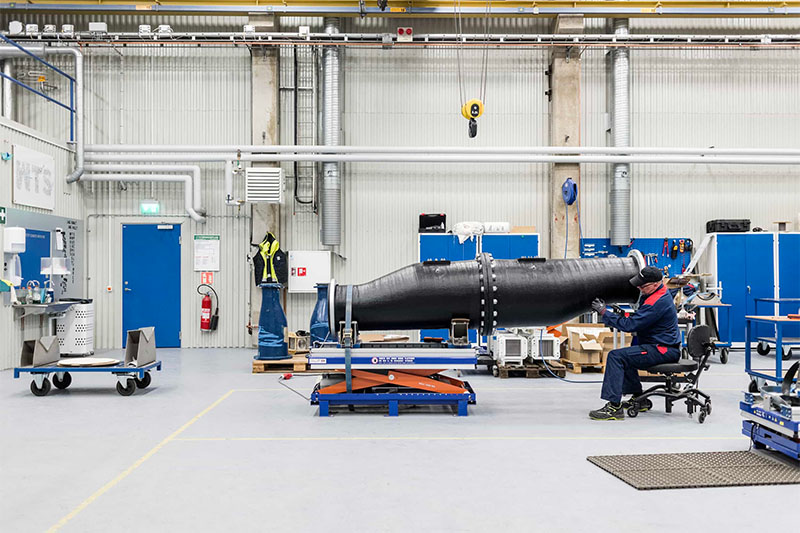Did you know that groundbreaking solutions for a greener world are being developed in a little village in northern Sweden? Meet Permascand, one of few electrochemical competence centres in Europe.
“We regularly work with students’ research projects. This is also a fantastic way to recruit bright young minds.”
“If I were to look for a job like this somewhere else, I’d probably end up in a big city like Tokyo or Vancouver,” says Erik Zimmerman, R&D Manager at Permascand, located in the village of Ljungaverk in Ånge Municipality, northern Sweden.
Here, Zimmerman has both a lot of responsibility and a free hand when it comes to prioritising the resources used to develop green solutions for the future on a platform of electrochemistry.
Permascand is a company with about 150 employees that supplies catalytic coatings, electrodes and electrochemical cells to customers all over the world, including in the form of Dimensionally Stable Anodes (DSA). As pioneers in DSA technology, Permascand has made it possible for their customers to exchange environmentally damaging lead and graphite anodes for titanium-based anodes that last much longer and use significantly less energy.
Zimmerman is responsible for the company’s research and development, but he also has a finger in the marketing and sales pie.
“It’s being able to work with a wide range of tasks that makes this job so good! Having our own R&D department means we can guide development based on our knowledge of what the market is looking for and what our researchers and specialists can best contribute with. I’ve worked here for 25 years and I’ve never been bored. I’ve travelled a lot and visited countless factories and I can’t imagine a better job anywhere. ”
In the autumn of 2019, Permascand got its biggest order ever, worth more than SEK 223 million (approx. ¤22,2 million), for a water purification system for ballast water.
“It’s such fun when challenging, long-term projects working to develop sustainable purification systems get recognised and when big actors in the shipping industry start to show an interest. The order proves that we have a product that is strongly competitive,” says Zimmerman.
As far back as 15 years ago, as soon as the UN’s International Maritime Organisation decided that all ships needed a system to manage and minimise the spread of invasive species, Permascand started work on a solution for purifying ballast water.
“We wanted to be able to offer an effective purification system that kills bacteria in an ecologically sustainable way. After many projects and development investments, we now have a fantastic solution with high effectiveness, and it is entirely chemical-free.”
Permascand has an unusually wide product range within the electrochemical field and is one of only a few competence centres in Europe. The company has customers in the manufacturing industry and hydrogen production, and customers that need Permascand’s help in balancing their electrical network and moving sustainable energy from offshore or wind-energy projects onto land using strategic components.
“There is a belief here, both in the region and in the company, that says; ‘If they can do it then so can we’. It is an environment where people are allowed to succeed and where there is a culture of finding solutions for problems. It’s in our blood. And this is perhaps why we are one of the world’s largest in this field. For example, for a product that purifies ballast water to go from Ljungaverk onto the global market, it really must be unique,”

The company has also recently launched a new brand, Norscand®, which is an electrochemical cell for the extraction of lithium – an important component in batteries for electric cars, for example. Norscand supplies the company Nemaska with lithium for their factory in Shawinigan, Quebec, where they use an electrochemical process in the final step and extract lithium hydroxide.
Large-scale production of lithium is essential if the world wants to move away from fossil fuels and use more electricity. This is due to the key role lithium hydroxide plays in the manufacture of batteries for electric cars, mobile phones and computers.
“Our solution makes it possible to extract lithium hydroxide using electrochemistry instead of traditional methods. Because we understand electrochemistry at atom and chemical level, we can use our solutions in other processes as well. One interesting area to research more is battery recycling, where batteries can be upgraded again via electrolysis,” says Zimmerman.

Permascand has projects together with the Royal Institute of Technology in Stockholm (KTH), Norway’s University of Science and Technology (NTNU) and local university Mid Sweden University.
“We regularly work with students’ research projects. This is also a fantastic way to recruit bright young minds.”
In addition to working together with these universities, product development often takes place in cooperation with partner companies in Europe and North America. 95% of production is exported.
“For me, it is incredibly satisfying that we are putting our products on the world market together with our international partners. This is proof that we have clever, hard-working employees, result-oriented development and well-functioning logistics. But also that we have realised the value of good partnerships,” concludes Zimmerman.



